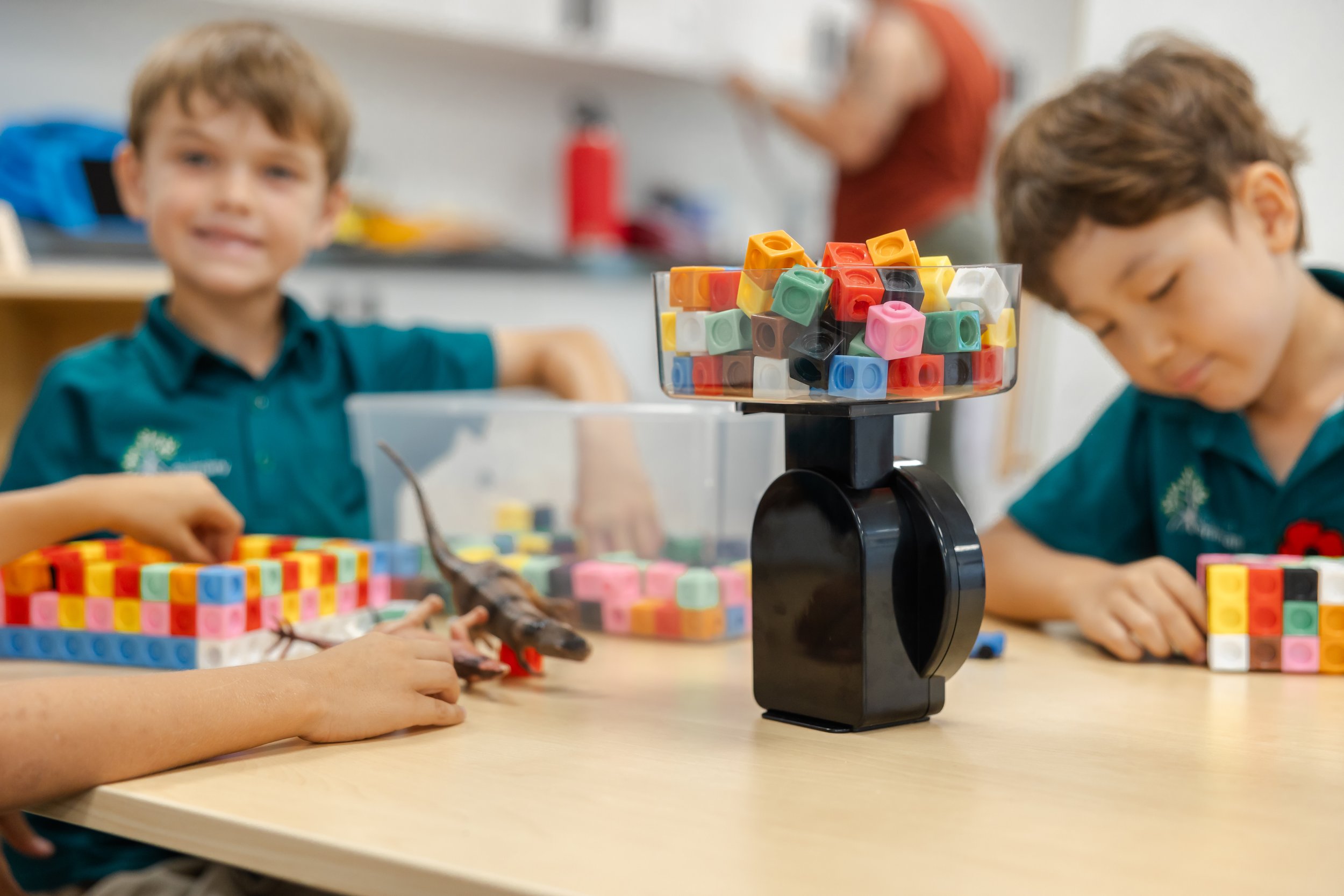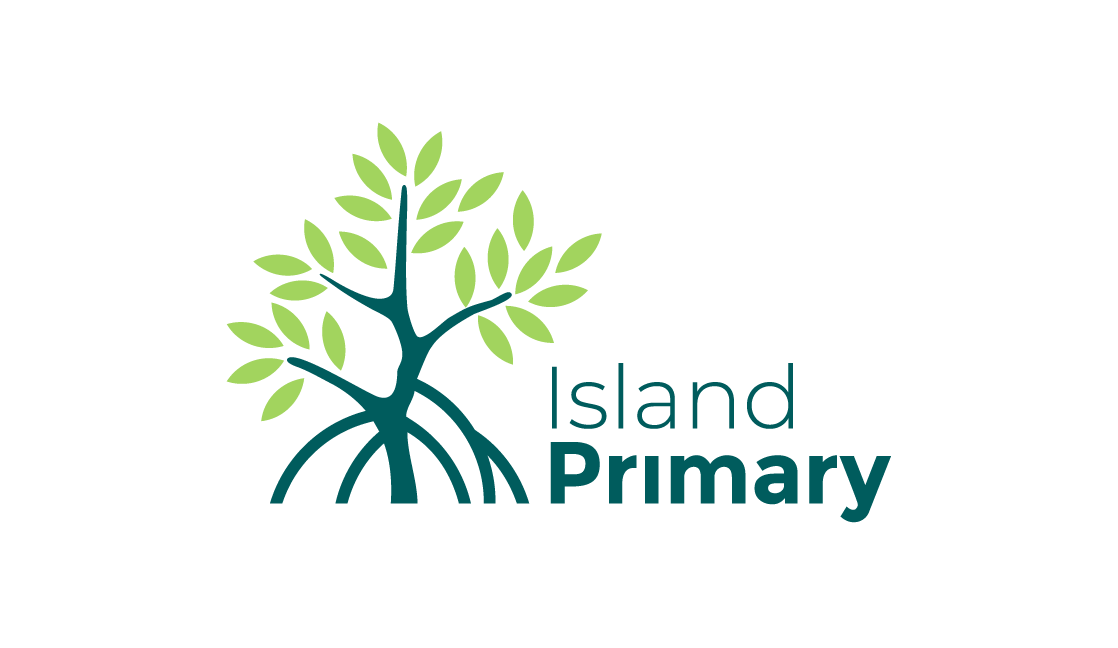
Academics
Primary School
Primary School Curriculum Overview
Island Primary is committed to ensuring we provide learning experiences which are engaging, significant and relevant to our children, both as citizens of the Cayman Islands and of the world that lies beyond our shores. Our curriculum is guided by the standards found within both the revised British Curriculum (2014) and the British Framework for Early Years Foundation Stage (2021).
We also recognise that our children come to school with their own passions, predispositions and preferences as learners, and it is with these in mind that we are driven to promote student agency within our curriculum; active ownership of learning where our children become co-creators of their learning through goal setting, decision-making, solution finding, and reflecting. In short, the Island Primary curriculum is defined as much by how and why our children learn, as what they learn: Our children focus on learning how to learn.
Interwoven with our academic curriculum are core skills, attitudes, and values supporting the children as they grow as individuals and as a community. At Island Primary, instilling a strong sense of belonging and of the associated responsibilities to people and place that this implies, are paramount to our holistic curriculum.
A school where every child can thrive
Island Primary
Curriculum Intent and Rationale
Intent
It is our intention for the curriculum at Island Primary to reflect our shared vision:
“To provide a dynamic learning community committed to actively engaging with, and contributing to, an ever-changing and diverse local and global society.”
We believe our students deserve learning experiences that are significant, relevant, and engaging with opportunities promoting inclusivity and a focus on the whole child developing as a positive, motivated, and resilient learner. The curriculum is based on the British National Curriculum with adaptations made to ensure experiences embracing the rich opportunities of our local environment.
Our curriculum values our students' passions, predispositions, and preferences while nurturing independent, reflective and critical thinkers, capable of confident decision making and problem-solving. Character development is as important as academic ability with effort, courage and perseverance underpinning successful learning. We want our students to develop learning skills which are appropriate for our ever-changing world and their future roles within a global and diverse society.
Rationale for Implementation
We use Dimensions ‘Learning Means the World’ Curriculum as the main vehicle for achieving our outlined intent.
This curriculum is underpinned by four highly relevant core units focusing on world issues,
these are known as the four Cs:-
Communication
At Island Primary we believe effective communication, verbal and non-verbal, lie at the heart of developing a community of learners and is the key skill that underpins all learning and development. We believe everyone comes to school with a voice and deserves a platform to be heard as well as listen to others: to grow as a person and learn. Through our curriculum, rich in language development, our students are provided with a wide range of opportunities to communicate their thoughts and ideas with increasing confidence and clarity. Technology as a means of communication is a valuable tool, and we prepare and enable our students to use these tools safely and effectively. We are proud of the storytelling culture within our community, and our curriculum embraces this valuable and traditional means of communication.
Culture
While recognising our island community as small, it is extremely diverse and culturally rich. Island Primary aims to provide a collective identity and an embedded culture where our students recognise, appreciate and respect similarity and difference. We aspire to establish a culture where individuality is nurtured alongside a strong sense of belonging, where everyone contributes to the success of the school community. We want a culture founded on unity, integrity, empathy, and kindness. We want our students to embrace, celebrate, and particpate in our local culture, but of equal importance are the opportunities to explore and share between cultures. We want our students to view life from a range of perspectives and use this knowledge to formulate their own ideas, opinions, and interpretations of the world around them.
Conflict
At Island Primary School we recognise that conflict is a part of learning, not something to be avoided, but an inescapable reality for which we all must be prepared. Our preconceptions and thinking are often conflicted by new information and this builds a healthy respect for alternate opinions, ideas, methods, and understandings. Our curriculum aims to provide our students with learning opportunities and guidance which develop resiliency and the confidence to embrace these conflicts as part of problem-solving. We also recognise that misunderstandings and misinterpretations in all areas of life can cause conflict. We understand that there are times in daily life when conflict seems inevitable and so we aim to arm our children with the skills and knowledge needed to understand why these conflicts can arise and how best they might be resolved. We also want students to understand that they have choices and that these choices come with responsibilities and may have consequences. We believe it is important for our students to understand the causes and results of conflict in the wider society, both now and in the past, and the impact of these on individuals and communities.
Conservation
Island Primary, located on the beautiful island of Grand Cayman, is proud of the enduring relationship Caymanians have enjoyed with our natural environment. Conservation and preservation are, therefore, foundational elements of our school’s philosophy as custodians obligated to protecting our natural resources. Our commitment to this aim is evidenced in our new site, sustainably designed to respect its natural surroundings. We want our students to know and understand why conservation and preservation are important to us as a school, to the wider local and global communities, and to extend to preserving traditions, pursuits and art of the islands. We want the understanding of our responsibilities to be embedded in the way we think and ultimately behave in everyday life. Our curriculum addresses sustainability and provides our students with the experiences and opportunities to explore these on a deeper level. We want our students to comprehend that they are held to account for ensuring their impact on the environment remains a positive one.
Our curriculum narrative begins with the theme of Communication. We recognise its importance within a small community and have integrated the different forms of communication; verbal, non-verbal and digital, into all areas of the curriculum and school life. We follow this with Culture, focusing on our school culture, the local culture and each other’s cultures. We focus on the similarities and differences of individual and group cultures, providing our students with a greater understanding of diversity. In the Spring Term, we focus on our world issue of Conservation. We want our students to be able to explore our environment and build upon their natural curiosity. We provide opportunities for our students to embrace their roles as stewards of the future, and in particular, develop a deeper understanding of sustainability. We end the year with the theme of Conflict, further guiding students to understand personal conflicts and the impact of their choices. Students are also provided with opportunities to develop a broader and deeper understanding of conflicts within nature and society, both in the past and in the present.
In addition to our four core units, we also encourage our students to have high personal aspirations, teaching them about four universal human competencies applicable to a range of contexts: creativity, commitment, courage, and community. One unit per year is dedicated to exploring a historical figure or groups of people (local and/or global) who clearly demonstrate the importance and benefits of developing and using these competencies.


